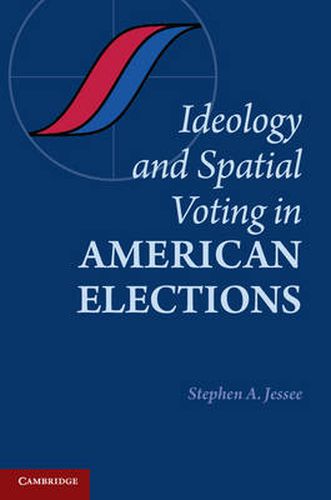Readings Newsletter
Become a Readings Member to make your shopping experience even easier.
Sign in or sign up for free!
You’re not far away from qualifying for FREE standard shipping within Australia
You’ve qualified for FREE standard shipping within Australia
The cart is loading…






Ideology and Spatial Voting in American Elections addresses two core issues related to the foundations of democratic governance: how the political views of Americans are structured and how citizens’ voting decisions relate to their ideological proximity to the candidates. Focusing on testing the assumptions and implications of spatial voting, this book connects the theory with empirical analysis of voter preferences and behavior, showing Americans cast their ballots largely in accordance with spatial voting theory. Stephen A. Jessee’s research shows voters possess meaningful ideologies that structure their policy beliefs, moderated by partisanship and differing levels of political information. Jessee finds that while voters with lower levels of political information are more influenced by partisanship, independents and better informed partisans are able to form reasonably accurate perceptions of candidates’ ideologies. His findings should reaffirm citizens’ faith in the broad functioning of democratic elections.
$9.00 standard shipping within Australia
FREE standard shipping within Australia for orders over $100.00
Express & International shipping calculated at checkout
Ideology and Spatial Voting in American Elections addresses two core issues related to the foundations of democratic governance: how the political views of Americans are structured and how citizens’ voting decisions relate to their ideological proximity to the candidates. Focusing on testing the assumptions and implications of spatial voting, this book connects the theory with empirical analysis of voter preferences and behavior, showing Americans cast their ballots largely in accordance with spatial voting theory. Stephen A. Jessee’s research shows voters possess meaningful ideologies that structure their policy beliefs, moderated by partisanship and differing levels of political information. Jessee finds that while voters with lower levels of political information are more influenced by partisanship, independents and better informed partisans are able to form reasonably accurate perceptions of candidates’ ideologies. His findings should reaffirm citizens’ faith in the broad functioning of democratic elections.